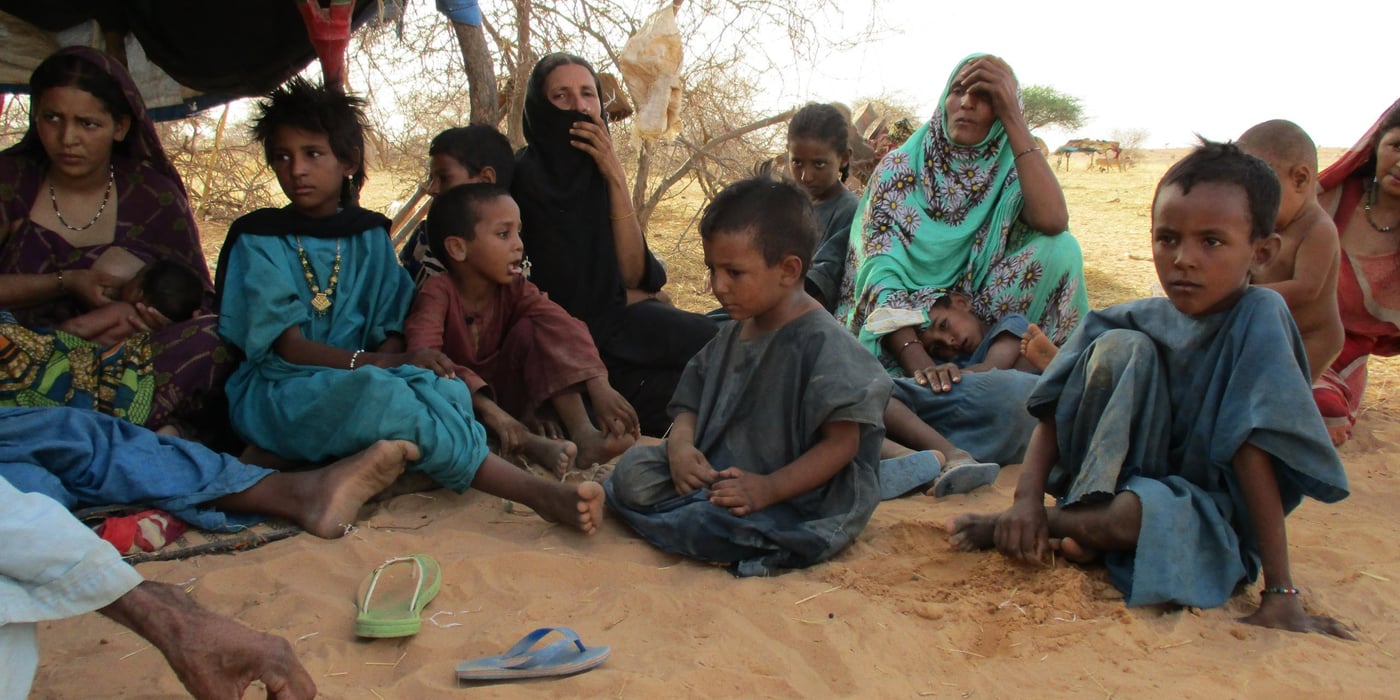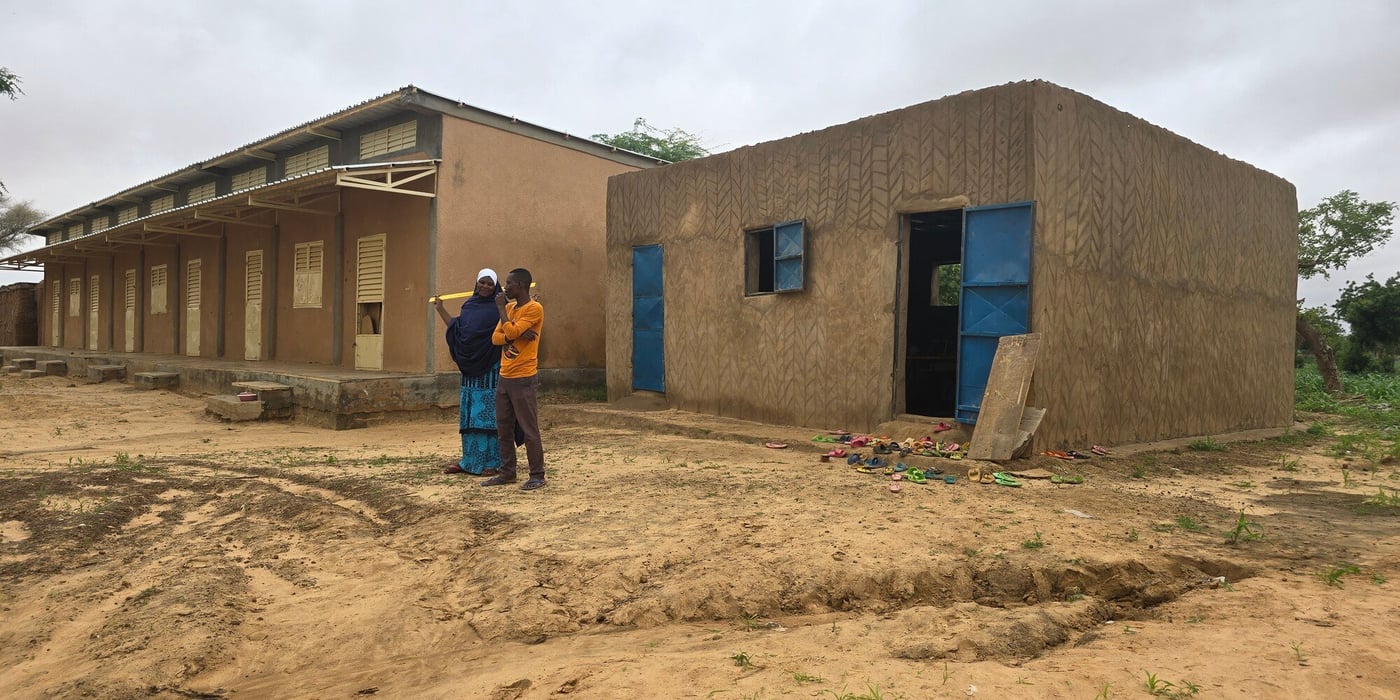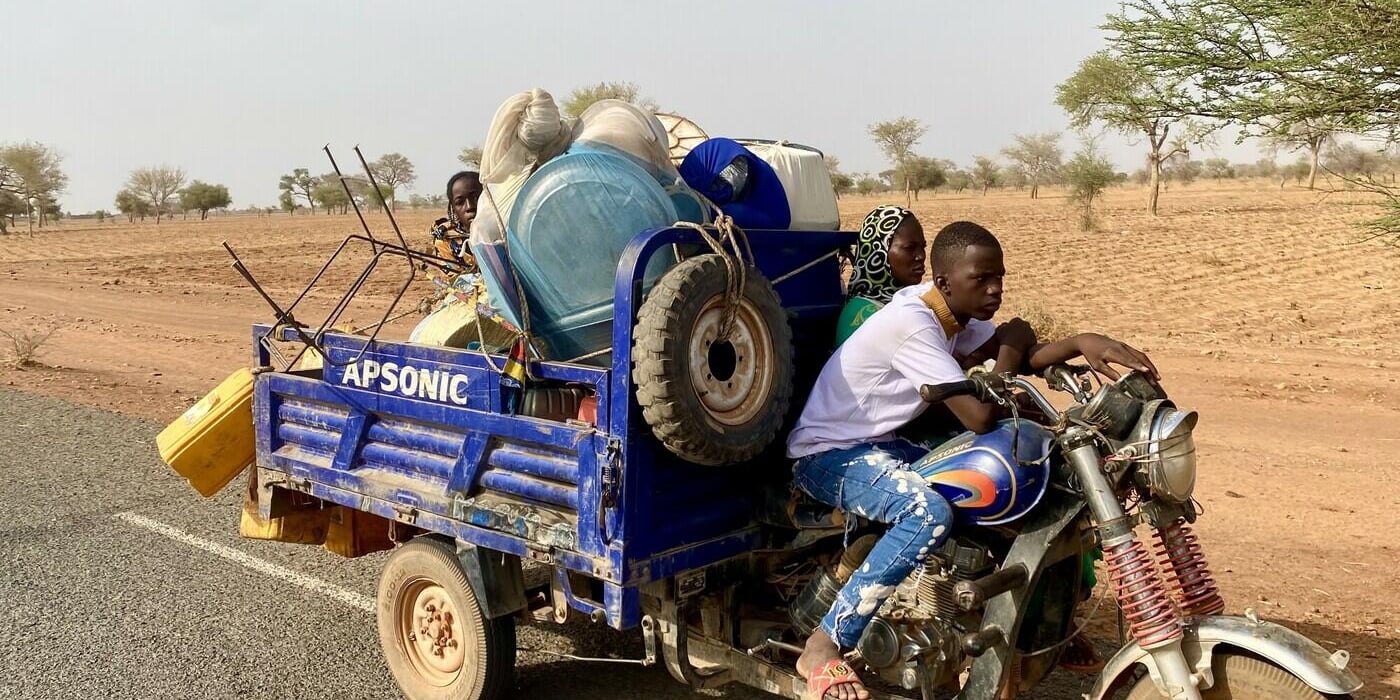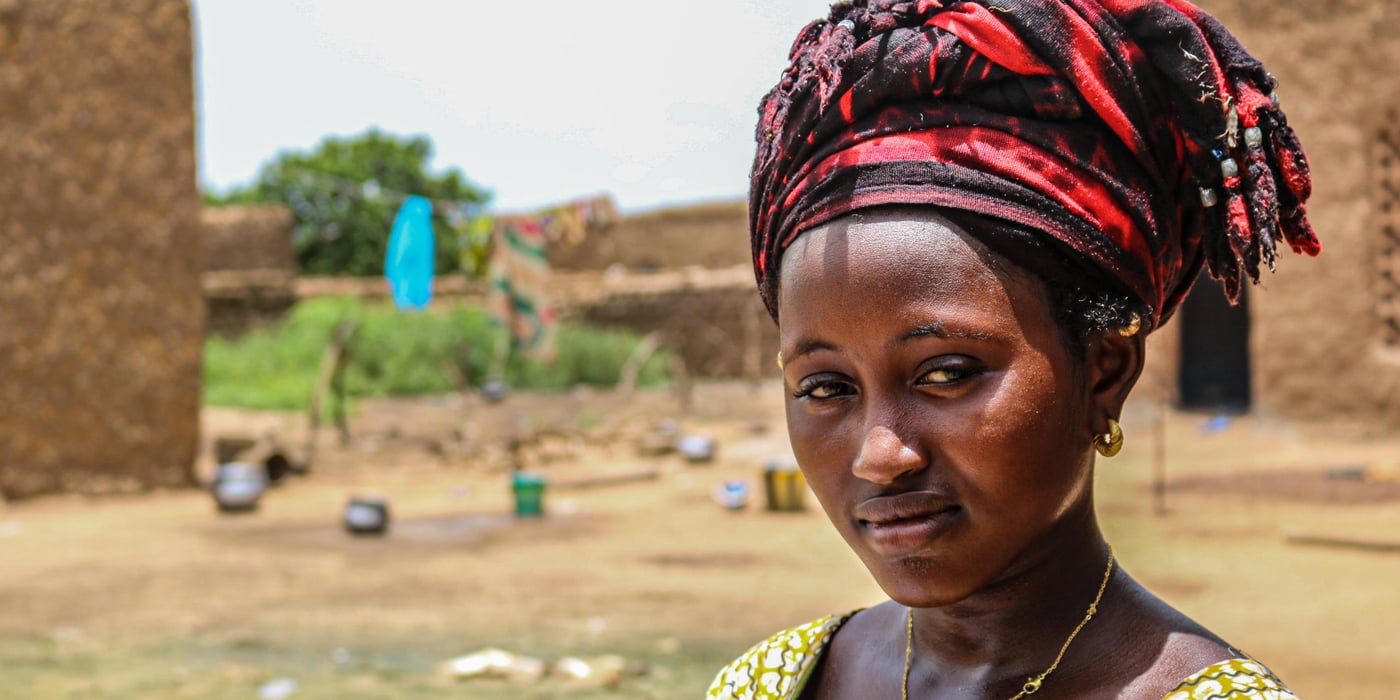
“Displaced families are drinking stagnant rainwater. Sanitary conditions are precarious. We fear the spread of water-borne diseases,” warned Badou Handane, emergency coordinator for NRC, who led the needs assessment.
Over 8,000 people have fled recent violence in the south and southwestern parts of Menaka at the border with Niger. The military response to the armed group JNIM, and fighting between local armed groups and JNIM, have forced the local community to flee. Families said they fled to avoid the conflict zone, being recruited, and being accused of supporting the armed groups.
Traumatised by last month’s attacks, women, men and children have chosen to split into several groups, to avoid being all at the same place and become targets of any mass killings. They are scattered across an area with a radius of 3 kilometres.
NRC is particularly worried about the traumas these families have experienced and the psychosocial impact. The emergency team sent to conduct a needs assessment earlier this month, reported that the internally displaced people were crying and shouting “Run! Run! They are going to kill us! Hide!” when they saw the team arrive.
“These women, men and children have sought refuge in remote areas and any visit has become frightening to them. After numerous attacks, they now live in anxiety and under psychosocial stress. We also noted that only women and children are seen during daytime. By fear of being a target, the men hide in the bush and return at night. We are worried because this could expose them to further danger,” added Handane.
The displaced families live in makeshift shelters built of plastic mats, fabrics, straws and pieces of wood. With the rainy season looming, these improvised shelters will not resist harsh wind and rain.
The situation for pregnant women, breastfeeding mothers and others with specific needs is particularly concerning.
“The security situation is worsening in several parts of Mali, and there is an urgent need to scale up the funding for humanitarian assistance to ensure displaced people receive support,” said NRC’s country director, Hassane Hamadou.
NRC, in collaboration with local authorities and other partners, will assist those who need it the most. NRC will provide water purification tablets, essential household items and plastic sheets. The team will also continue to assess possibilities for further support.
The response is funded by the European Civil Protection and Humanitarian Aid Operations (ECHO) and UNICEF, through the so-called Rapid Response Mechanism.




